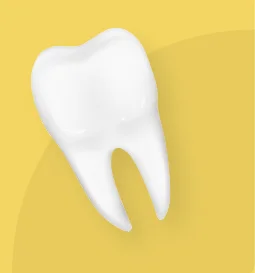Maintaining good oral hygiene is essential for overall dental health, and regular dental cleanings play a crucial role in this. However, there are times when a more intensive cleaning procedure, known as deep cleaning, may be necessary. Let’s explore the distinctions between standard dental cleaning and deep cleaning as offered by a dentist in Indore:
Regular Cleaning
- Routine Maintenance: Regular cleanings, also known as prophylaxis, are typically performed every six months as part of a preventive dental care regimen.
- Plaque and Tartar Removal: During a regular cleaning, the dentist or dental hygienist will remove plaque and tartar buildup from the teeth and along the gumline using specialized tools.
- Polishing: After plaque and tartar removal, the teeth are polished to remove surface stains and leave them smooth and shiny.
- Preventive Measures: Regular cleanings help prevent cavities, gum disease, and other dental problems by removing plaque and tartar buildup before it can cause damage.
Deep Cleaning
- Treatment for Gum Disease: Deep cleaning, also known as scaling and root planning, is a non-surgical procedure aimed at treating gum disease and preventing its progression.
- Removing Plaque and Tartar Deposits: In deep cleaning, the dentist or a dental hygienist cleans below the gumline to remove plaque and tartar deposits that have accumulated on the roots of the teeth.
- Smoothing Root Surfaces: After scaling, the root surfaces are smoothed (planned) to remove rough areas where bacteria can accumulate, helping the gums reattach to the teeth.
- Multiple Appointments: Deep cleaning is often performed over multiple appointments, focusing on different areas of the mouth to ensure thorough treatment.
When is Deep Cleaning Necessary?
- Presence of Gum Disease: Deep cleaning is typically recommended for patients with signs of gum disease, such as red, swollen, or bleeding gums, and pockets of infection around the teeth.
- Heavy Plaque and Tartar Buildup: If there is significant plaque and tartar buildup below the gumline, regular cleanings may not be sufficient to remove it effectively, necessitating deep cleaning.
- Preventive Measure: In some cases, deep cleaning may be recommended as a preventive measure for patients with a high risk of developing gum disease.
Both regular cleaning and deep cleaning are essential components of a comprehensive dental care routine. While regular cleanings help maintain oral health and prevent problems, deep cleaning is necessary for treating gum disease and addressing more severe plaque and tartar buildup.
By understanding the differences between the two procedures, you can consult with a dentist in Indore to develop a personalized treatment plan that meets your specific dental needs.




